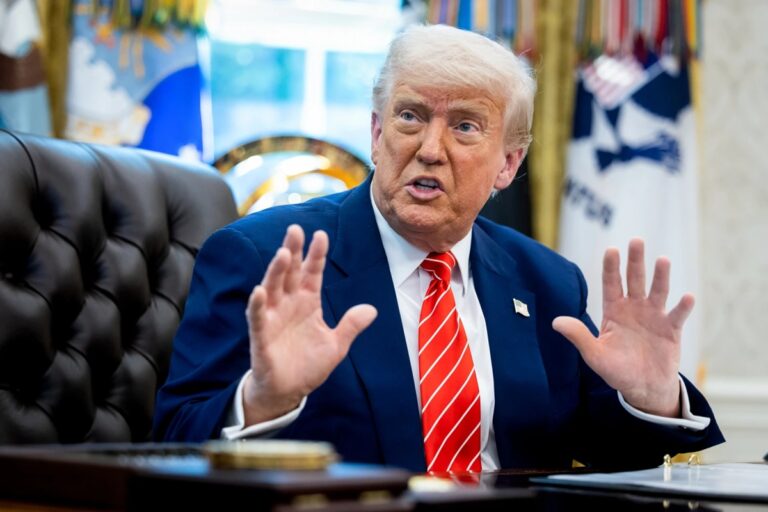A US appeals court may have paved the way to take away US President Donald Trump’s biggest weapon in his foreign policy – tariffs.
A divided US Court of Appeals for the Federal Circuit voted 7-4 and ruled on Friday that President Trump had no legal right to impose sweeping tariffs on “almost every country on earth”.
“The core Congressional power to impose taxes such as tariffs is vested exclusively in the legislative branch by the Constitution,” the court said. “Tariffs are a core Congressional power.”
The court paused its ruling from taking effect until October 14 to give the Trump administration time to ask the Supreme Court to reverse the decision.
While the tariffs have given Trump leverage to extract economic concessions from trading partners, it have also increased volatility in financial markets.
Trump reacted with a post in his Truth Social, saying the court was “highly partisan, and added: “If these Tariffs ever went away, it would be a total disaster for the Country. If allowed to stand, this Decision would literally destroy the United States of America.
“The USA will no longer tolerate enormous trade deficits and unfair tariffs and non-tariff trade barriers imposed by other countries, friend or foe.”
Trump also said that his administration would challenge the decision in the US Supreme Court.
The case was consolidated from two separate lawsuits – one filed by five small businesses in the US, and the other by a dozen US states. It’s now known as ‘V.O.S. Selections v. Trump’.
The states have been challenging Trump’s use of the International Emergency Economic Powers Act, or IEEPA, to impose sweeping tariffs.
The Trump administration has argued that IEEPA empowers the president to effectively impose country-specific tariffs at any level if he deems them necessary to address a national emergency.
This is the second straight defeat for Trump on the subject. In May this year, the US Court of International Trade also struck down Trump’s IEEPA-based tariffs.
In Friday’s ruling, the court found that the challenged tariffs exceeded Trump’s authority under IEEPA and said ““It seems unlikely that Congress intended to … grant the President unlimited authority to impose tariff.
“Both the Trafficking Tariffs and the Reciprocal Tariffs are unbounded in scope, amount, and duration. These tariffs apply to nearly all articles imported into the United States (and, in the case of the Reciprocal Tariffs, apply to almost all countries), impose high rates which are ever-changing and exceed those set out in the (US tariff system), and are not limited in duration.
“The statute (IEEPA) bestows significant authority on the President to undertake a number of actions in response to a declared national emergency, but none of these actions explicitly include the power to impose tariffs, duties, or the like, or the power to tax.”
The 1977 law has been used several times by U.S. presidents to impose sanctions on enemies or freeze their assets. However, Trump is the first president to use IEEPA to impose tariffs.

